At my children’s school the pupils are strongly encouraged to read every night once they are back at home. To promote this and monitor progress, they are given a reading record to fill in. During a child’s early years at school, when they are still learning to read, parents are expected to write the comments, but as they progress the children start to write their own thoughts about what they have been reading.
Initially, this is a simple retelling of what’s been read, but as they progress up the school, the children are expected to do more than just recount the story. They’re asked to comment on the use of language, theme, and imagery used in the books they are reading. Parents are given a list of questions that we can then ask our children to help ensure they make the most of what their reading time.
This is all very laudable and as a book lover, I’m all for it, but I do have a couple of reservations. The first is a simple one. If there’s one thing that’s going to kill a child’s enjoyment of reading, it’s forcing them to write (too often) about what they’ve read. My son loves to read. He will hole up for extended periods of time with a book, but hates being asked to sit and write about the experience. For him, the reading record is a once-a-week chore. A few questions and then off he goes.
Which brings me to my next issue: What questions should I ask of which book?
The questions given are interesting. For example: “What do you think would happen if…?”, “How would you have felt in the same situation?”, and “What makes this a successful story?” These are all great questions and there are many more on the sheet we’ve been given, yet I found myself asking the same few questions each week.
This stemmed from the resistance of my son to answering anything at all about the book. His immediate stonewalling made it hard to engage him with certain types of question, if I hadn’t previously read the book. If you don’t know much about the novel, how do you know which is a good question to answer? This problem is made worse if you have a truculent ten-year-old refusing to give you any information. I often ended up playing it safe, asking questions like “Find three powerful verbs,” and “Where does the story take place?” The reading record was becoming stale and a chore for all concerned.
I then hit on the idea of the two of us reading the same novel alongside one another. There are a number of classics that I’ve never read, particularly in the science fiction fantasy arena and I thought it might be fun to discover these books together. And so my Parallel Reading Experiment was born.
The initial plan was to reserve two copies of the chosen book from our local library, borrow them and then read them together. There were a number of teething issues. The first: my son reads an awful lot quicker than I do! Not necessarily words per minute but certainly in minutes per day. I’d read a chapter of a book, only to discover he’d read five. I’d be about 100 pages into a book, just as he was finishing it.
Another problem was that my initial choice of book was perhaps over-ambitious. My son was coming up ten and a strong reader. I thought the Wizard of Earthsea might be suitable, but even I fell asleep reading the first chapter. My young apprentice was not at all convinced, and so after a few chapters we gave up. Not forever but for now.
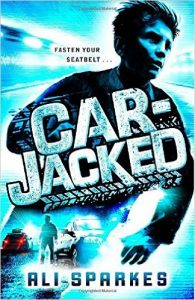 After that the reading alongside fell away. Ethan was reading a book recommended by children’s book critic Amanda Craig (who has excellent lists of books for children of all ages) called CarJacked by Ali Sparkes. After reading it he handed it to me and said, “You have to read this, dad.” You can’t get a much greater recommendation than that, so I did. He was right. CarJacked is an excellent book.
After that the reading alongside fell away. Ethan was reading a book recommended by children’s book critic Amanda Craig (who has excellent lists of books for children of all ages) called CarJacked by Ali Sparkes. After reading it he handed it to me and said, “You have to read this, dad.” You can’t get a much greater recommendation than that, so I did. He was right. CarJacked is an excellent book.
It tells the tale of Jack, an overprotected child-genius and what happens to him after his parents’ car is stolen with him still sitting in the back. Jack’s unwitting carjacker gets the fright of his life and after some hasty explaining, the two strike up an unlikely friendship. Ross is a desperate criminal but there is more to his tale than simple grand theft auto. Jack finds something he has never had before, friendship, and an opportunity to use his vast intellect to rescue a good man from a difficult situation. Carjacked has thrills aplenty and rips along at breakneck speed. The ending is clever and even brings a tear to the eye. It’s an all-around excellent read.
Our next pick was another modern title, The Iron Trial, first book in the Magisterium series, by well-known and much-read authors Holly Black and Cassandra Clare. We both loved this story of a subterranean magic school. Comparison with Harry Potter is inevitable and I think the books (we’ve since read the second The Copper Gauntlet) stand up well against Rowling’s bestsellers.
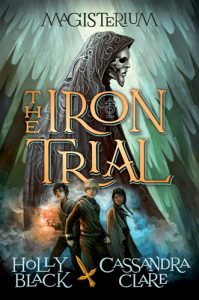 They’re more grounded in the real world than the Harry Potter books. Cal, the novel’s central character, faces many of the same problems that children his age face, rather than just the genre standard, woes of a dead parent and destined-for-greatness magical abilities. Yes, there’s an overreaching bad guy, but there are also many shades of gray.
They’re more grounded in the real world than the Harry Potter books. Cal, the novel’s central character, faces many of the same problems that children his age face, rather than just the genre standard, woes of a dead parent and destined-for-greatness magical abilities. Yes, there’s an overreaching bad guy, but there are also many shades of gray.
From the outset Cal’s dad is set against him attending the Magisterium, denouncing them as being at least as bad as “The Enemy” himself. (Since said shadowy Dark One killed Cal’s mum and a host of other magi, this is quite an accusation). A major strength of the series is its innovative magic system. It’s well thought-out and consistent, lending the books extra weight. We both devoured the first two Magisterium books and twelve months feels like way too long to wait for another installment.
I was eventually able to steer us onto a classic we both enjoyed, the favorite of many a GeekDad, The Phantom Tollbooth. I remember loving this book thirty years ago and was very much looking forward to sharing it with my children. I think it’s perfect for a parallel read thanks to its depth. There’s the story to discuss, but beyond that, there is use (and misuse) of language, and powerful metaphors to analyze. We could talk about the things we take for granted, what being bored really means, and a whole lot more besides. My edition had several handy reader questions in the back, perfect for sparking thoughtful discussion. You’ve probably read the Phantom Tollbooth, so you’ll know exactly what I’m talking about. If you haven’t, do pick up a copy; you and your children are in for a treat.
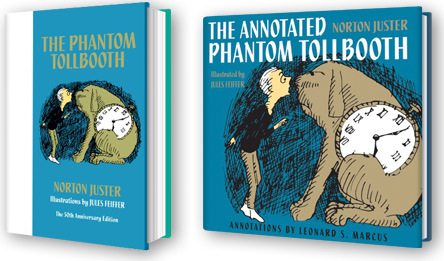
My next classic choice also had some helpful discussion questions in the back; one of the advantages, it would seem, of choosing an established text. Written in 1902, E. Nesbitt’s Five Children and It is a warning to be careful what you wish for. I was concerned the novel might have dated, but despite its central characters being well-off British children from a by-gone era, the novel’s tone is still very accessible. It’s written with a conspiratorial narrative voice that my son loved because it made him feel like he had all the answers whilst I, the grown-up, had no idea how the world really worked. This was a classic I missed out on growing up and I’m glad to have finally caught up.
After a shaky start, the experiment is now up and running. Both my son and I have been getting more from the weekly reading record write-up and, judging by the comments in his book, so has his teacher. I’d be lying if I said I’d eradicated homework related tantrums, but the process does seem to be smoother now. I’ve also noticed an increased willingness to step out of his comfort zone, now he knows he’ll have company on the journey.
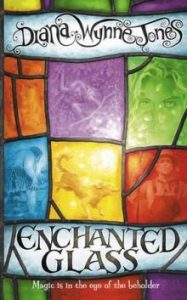 What next for my parallel reading scheme? We recently purchased Kate Saunders revisit to Nesbitt’s world in Five Children on the Western Front. This book came out to great acclaim in the UK and won the prestigious COSTA children’s book award. Saunders is already a firm favorite in this house with her Whizz-Pop Chocolate Shop, so I’m looking to reading that, though I mustn’t forget that Nesbitt herself wrote two follow-ups to Five Children and It. I must pick those up too.
What next for my parallel reading scheme? We recently purchased Kate Saunders revisit to Nesbitt’s world in Five Children on the Western Front. This book came out to great acclaim in the UK and won the prestigious COSTA children’s book award. Saunders is already a firm favorite in this house with her Whizz-Pop Chocolate Shop, so I’m looking to reading that, though I mustn’t forget that Nesbitt herself wrote two follow-ups to Five Children and It. I must pick those up too.
Further on, I would like to return to Earthsea for another try, and read Susan Cooper’s The Dark is Rising, another series I missed out on when growing up. Next though is Diana Wynne Jones, another author I’ve never read. For my choice I was restricted to what was available in the library, so we have Enchanted Glass because I liked the cover and my son has a love of stained glass windows.
I hope this will be the first of a series of posts about reading with my children, and much like my literary SFF feature, I would love the input of GeekDad readers. Which books have you enjoyed sharing with your children? Which childhood classics should we revisit? Born and bred in the UK, my list is likely to be Anglo-centric. Are there any US classics or authors we should investigate? Please do share your thoughts in the comments.



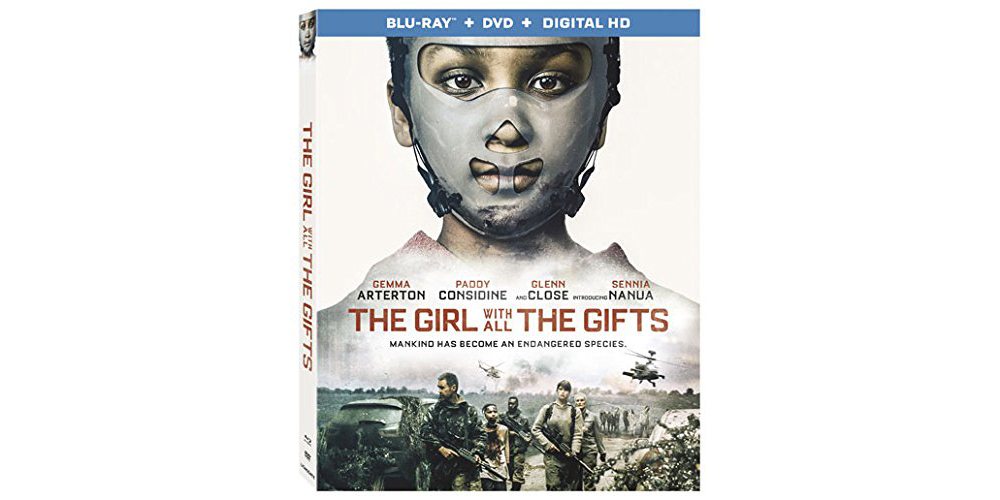
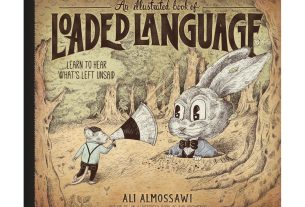
We do this a lot in our house, too. Partly because we parents want to know what the kids are reading, that way we can approach sensitive subject matter together. Plus, it gives us a good excuse for reading some really fun books! I never would have picked up Rick Riordan’s works on my own, but by reading in parallel with our kids, my wife and I found a whole new world of words to enjoy.
Ethan has read a couple of Rick Riordan’s but I haven’t. I keep meaning to try one. I don’t think he can be that fussed as he hasn’t pestered me for more. Still, I have boys two and three to continue the exploration after him!
I’ll have to check out the Magesterium books, I loved Holly Black’s Doll Bones. Have you checked out Tom Angleberger, Kate DiCamillo or Daniel Pinkwater?
I have a Daniel Pinkwater book, because Cory Doctorow cited him as an influence in his acknowledgements for Little Brother (IIRC). I haven’t read it yet though. It’s probably formed part of a load-bearing wall by now! I’ve not heard of the others, I’ll check them out too. Thanks!